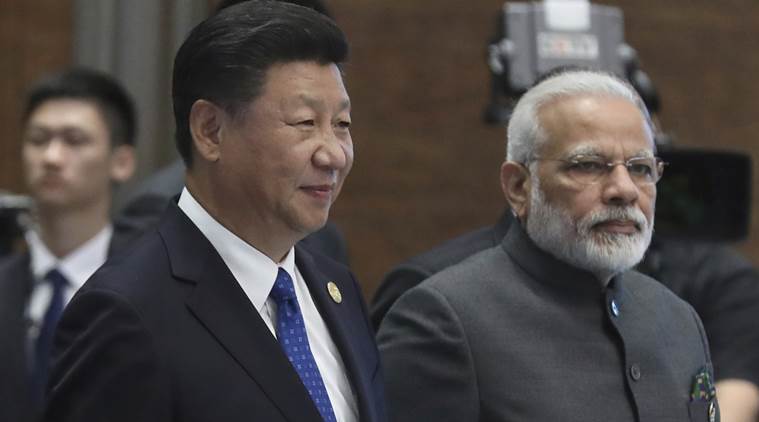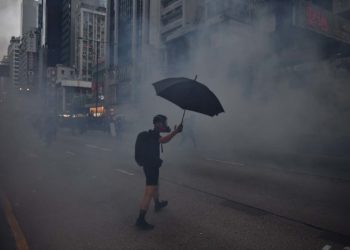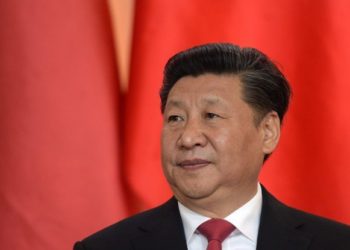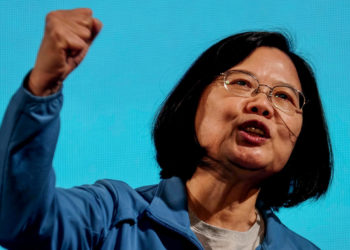If the popular saying, “When India and China shake hands, the world takes notice” has any strategic relevance, then the meeting between Narendra Modi and Xi Jinping in the Chinese city of Wuhan this week will draw much global attention.
This summit, scheduled for April 27-28, will not only be a major political rapprochement that could help to rebuild the current low-tide bilateral relations severely affected by the 73-day Doklam border standoff, but it will also redefine the India-China dynamics in the times to come.
The significance of the event is underscored by such factors as Xi’s extended presidency, Modi’s plural foreign policy approach aimed at strengthening India’s international outreach both in the West and in the East, U.S. President Donald J. Trump’s increasing conservatism manifesting through his “America first” policy to protect U.S. interests and the growing prominence of Indo-Pacific.
Besides, India-China relations are at a crucial point now, especially when most of the Asian powers have indicated their intent to withdraw U.S. pledge and are vying to rebuild their relationship with Beijing.
The political decision to have this “one-on-one” informal meeting is a big call and will, perhaps, be recorded in history as the “Wuhan moment” in India-China ties. This will supposedly deepen understanding between New Delhi and Beijing by reframing not only their bilateral ties but also positioning the two countries’ relations more robustly in a rapidly changing Asian environment.
The record suggests that a leadership-centric discourse has always existed between the two nations. After 1947, and in the next two decades, India-China relations were heavily personality-centric, with both Jawaharlal Nehru and Mao Zedong playing a strong role in shaping the relationship trajectory.
In 2004-2013, former Prime Minister Manmohan Singh and former President Hu Jintao helped to shape India-China relations during the first decade of the 21st-century, when the ties got more institutionalized.
Now, with Xi Jinping being able to continue his term as the president limitlessly, and Narendra Modi securing his stand in India, the leadership-centric relationship has made its return. This implies that the immediate future of the two countries’ relations is heavily hinged on the leaders’ personal understanding.
In fact, this meet is an informal one and therefore the threshold of personal understanding between Asia’s top leaders will remain an opaque subject in the public glare. However, it signals a new beginning in India-China engagement, forging ahead the “forward-looking constructive relationship” agreed upon by Modi and Xi on the sidelines of Xiamen BRICS summit in 2017. So, what would this “forward-looking constructive relationship” signify?
A forward-looking approach in a “constructive” relationship essentially implies a stronger bilateral understanding with a robust regional and global character. Its essence is to nurture a stronger economic-oriented “developmental partnership,” envisioned during the early days of Modi-Xi tenure, with the aim to extend this cooperation gradually to a greater regional and global ambit.
Originally, the purpose was to extend the bilateral canvas of India-China developmental partnership within the prism of the decade-old “Strategic and Cooperative Partnership of Peace and Prosperity.” Therefore, India and China are now expected to pursue a constructive economic engagement regardless of the problematic issues, including the border dispute.
Reverting to this principle of understanding is surely a great development, given that the two countries’ strategic ambitions are fast becoming contradictory in an increasingly competitive and complex global order. Nonetheless, stronger trade and economic exchanges between them have been the most stabilizing factor over the last two decades.
The rise in trade from meager $3 billion at the beginning of the century to more than $80 billion in 2017, indicates how economic engagement has remained an enduring aspect in India-China relations despite diabolic boundary disputes.
In 2017, despite the Doklam stand-off, bilateral trade witnessed a substantial surge, touching $84.44 billion for the first time in India-China history, compared to the $71.18 billion registered in 2016. The Wuhan meet would further amplify the return to the original discourse, focusing on a much-required economic-oriented developmental partnership, while maintaining peace and prosperity as the overarching objectives.
This will undoubtedly offer a new context to the India-China bilateral account, indicating a case of interdependency with both countries needing each other’s market for mutual economic benefits.
India needs Chinese investment to boost employment, though trade imbalance and shifty Chinese companies could continue to be roadblocks. Still, Modi’s “Make in India” and “Shreshtha Bharat” (Great India) campaigns would like to seek Chinese investment to carry out fast-track infrastructural development.
In this regard, the Wuhan meeting could help a greater understanding unfold, with the Chinese companies being welcomed to invest more intently in India in areas like smart cities, infrastructure development, urban development, renewable energy, solar panels, power sectors, and so on.
Though China is aware of India’s reservations when it comes to Xi’s flagship Belt and Road Initiative (BRI), it still sees India as a prospective economic partner for its investment within the overall ambit of the project.
Although at present Chinese exports to India roughly accounts for 2 percent of its total global export volume, and China can most definitely sustain its export market by cooperating with other Asian countries, policymakers in Beijing still consider India as an unexplored and relatively new market for many goods, including electronics.
Beijing is eyeing India as an important regional hub for its economic diplomacy. If one may recall, during his visit to India in 2014, Xi Jinping stated that China would like to expand cooperation with India in sectors like manufacturing and infrastructure building.
Above all, the Wuhan meeting may help a renewed understanding emerge between India and China on connectivity cooperation within a larger Asian or Eurasian framework.
India might hold strong reservations over China’s BRI and might not endorse this flagship initiative formally, but this does not limit the scope of the countries’ cooperation on connectivity and corridors. With India being a member of the Shanghai Cooperation Organization (SCO), the notion of boosting regional connectivity and corridors has only expanded more. In fact, continuing in the spirit of the 2017 Astana SCO summit, the forthcoming SCO Qingdao summit will focus on promoting connectivity and corridors across the Eurasia region.
Beijing has decided to hold the 2018 SCO summit in Qingdao since this city of Shandong province offers a land connection to Europe through railways and promotes maritime connectivity with other countries. The Chinese aim has always been to promote greater consensus among the SCO members, including the new members like Pakistan and India, on regional connectivity issues. Thus, the Wuhan meet may bring about the beginning of a new consensus between India and China on connectivity and corridors in Asia and beyond, impacting the larger Asia-Pacific or Indo-Pacific security.
With this contextual scenario in order, Modi-Xi summit in Wuhan can become the new beginning in India-China relations in Indo-Pacific. In other words, this “one-on-one” informal meet certifies that India and China will take caution when it comes to overtly working against each others’ interests in Indo-Pacific, even though their mutual strategic interests may clash from time to time.
Modi-Xi summit further assures that differences between the two countries may lead to a divided strategy but will not degrade the importance of overall India-China relations in Indo-Pacific.
Therefore, by heralding a change in India-China bilateral relations, this meeting will strongly impact the balance of power equation in Asia, prompting a scenario where New Delhi-Beijing relations become the defining aspect of the Indo-Pacific security order in the times to come.
Disclaimer: The views and opinions expressed here are those of the author and do not necessarily reflect the editorial position of The Globe Post.





















